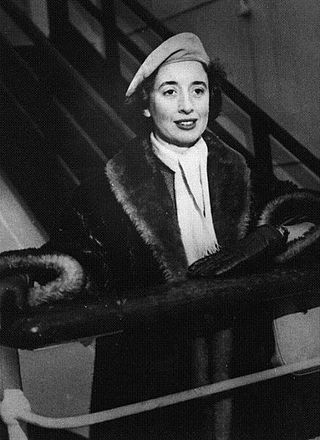
This article is about music-related events in 1823.
This article is about music-related events in 1824.

Friedrich Julius Reubke was a German composer, pianist and organist. In his short life, he composed the Sonata on the 94th Psalm in C minor, which is considered to be one of the greatest organ works in the romantic repertoire.

Franz Xaver Wolfgang Mozart, also known as Wolfgang Amadeus Mozart, Jr., was the youngest child of six born to Wolfgang Amadeus Mozart and his wife Constanze and the younger of his parents' two surviving children. He was a composer, pianist, conductor, and teacher of the late classical period whose musical style was of an early Romanticism, heavily influenced by his father's mature style. He knew Franz Schubert and Robert Schumann, both of whom held him in high esteem.
The organ repertoire is considered to be the largest and oldest repertory of all musical instruments. Because of the organ's prominence in worship in Western Europe from the Middle Ages on, a significant portion of organ repertoire is sacred in nature. The organ's suitability for improvisation by a single performer is well adapted to this liturgical role and has allowed many blind organists to achieve fame; it also accounts for the relatively late emergence of written compositions for the instrument in the Renaissance. Although instruments are still disallowed in most Eastern churches, organs have found their way into a few synagogues as well as secular venues where organ recitals take place.

Jeanne Marie-Madeleine Demessieux was a French organist, pianist, composer, and teacher. She was the chief organist at Saint-Esprit for 29 years and at La Madeleine in Paris starting in 1962. She performed internationally as a concert organist and was the first female organist to sign a record contract. She went on to record many organ works, including her own compositions.
The Juno Award for Classical Album of the Year has been awarded since 1985, as recognition each year for the best classical music album in Canada. It was a split from the prior category for Juno Award for Classical Album of the Year, alongside a separate new category for Classical Album of the Year – Large Ensemble or Soloist with Large Ensemble Accompaniment.
Wolfgang Friedrich Rübsam is a German-American organist, pianist, composer and pedagogue.
Hermann Schroeder was a German composer and a Catholic church musician.

The Sonata on the 94th Psalm in C minor is a sonata for solo organ by Julius Reubke, based on the text of Psalm 94. It is considered one of the pinnacles of the Romantic repertoire.

The Fantasy and Fugue on the chorale "Ad nos, ad salutarem undam", S.259, is a piece of organ music composed by Franz Liszt in the winter of 1850 when he was in Weimar. The chorale on which the Fantasy and Fugue is based was from Act I of Giacomo Meyerbeer's opera Le prophète. The work is dedicated to Meyerbeer, and it was given its premiere on October 29, 1852. The revised version was premiered in the Merseburg Cathedral on September 26, 1855, with Alexander Winterberger performing. The whole work was published by Breitkopf & Härtel in 1852, and the fugue was additionally published as the 4th piece of Liszt's operatic fantasy "Illustrations du Prophète" (S.414). A piano duet version by Liszt appeared during the same time (S.624).

August Stradal was a Czech virtuoso pianist, arranger, composer, author and music teacher.

Harald Feller is a German organist, choral conductor and composer teaching at the Hochschule für Musik und Theater München. He was awarded the 1983 Grand Prix du Disque Liszt.

Gabriel Dessauer is a German cantor, concert organist, and academic teacher. After studies with Diethard Hellmann and Franz Lehrndorfer, he was responsible for the church music at St. Bonifatius, Wiesbaden from 1981 to 2021, conducting the Chor von St. Bonifatius until 2018. Besides normal church services, he conducted them in regular masses with soloists and orchestra for Christmas and Easter and a yearly concert. In 1995 he prepared the choir for a memorial concert commemorating the 50th anniversary of the end of World War II, performing Britten's War Requiem with choirs from countries involved in the war, and concerts in Wiesbaden and Macon, Georgia. Programs of choral concerts included Hermann Suter's Le Laudi in 1998, the German premiere of Rutter's Mass of the Children in 2004, and the world premiere of Colin Mawby's Bonifatiusmess in 2012 which he had commissioned for the choir's 150th anniversary. The concert of 2008, Vivaldi's Gloria and Haydn's Nelson Mass, was also performed at San Paolo dentro le Mura in Rome.

Alexander Winterberger was a German organist and composer. He is mostly remembered for his association with Franz Liszt, in particular his close involvement with the two great organ fantasies Liszt wrote for the Merseburg Cathedral organ, the Fantasy and Fugue on the chorale "Ad nos ad salutarem undam" and the Fantasy and Fugue on the Theme B-A-C-H.

Giovanni Bellucci is an Italian pianist.

Mélodie Zhao is a classical pianist. She was born in Bulle, Switzerland.
Bernhard Haas is a German organist, music theorist and academic.












